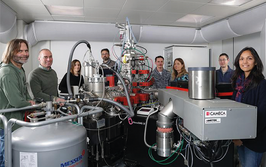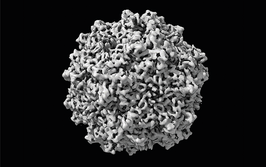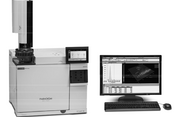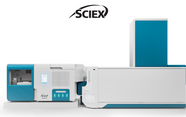Characterisation of the endothelial cell dicarbonyl proteome - proteins modified by methylglyoxal linked to vascular disease in diabetes and renal failure

contributed by Thermo Fisher Scientific |
Abstract
Methylglyoxal (MG) is an endogenous potent protein modifying agent, increased particularly in ageing, diabetes and kidney failure. It is an arginine-directed agent and often targets functionally important sites in proteins leading to inactivation. It produces a posttranslational modification (PTM) called a hydroimidazolone MG-H1, mass increment 54. MG-H1 is a quantitatively major sugar-derived PTM formed spontaneously and, unlike glucose modification, is highly damaging. Methylglyoxal is metabolised by the enzyme glyoxalase 1 (Glo1). GLO1 gene knockout is embryonically lethal and GLO1 overexpression increases lifespan. Glo1 deficiency produces increased MG-H1 modification and increased risk of obesity, type 2 diabetes and cardiovascular disease. We quantify total MG-H1 content of proteins by stable isotopic dilution analysis LC-MS/MS of exhaustive enzymatic digests. We have identified proteins susceptible to MG modification, “dicarbonyl proteome” (DCP), by Obitrap fusion proteomics. In proteomics studies there is increased wariness of use of antibody pull-down protocols as antibody specificity is imperfect. Identification of MG-H1 residues in tryptic peptides by mass spectrometry is essential.
Log in or register to read this article in full and gain access to The Analytical Scientist’s entire content archive. It’s FREE!

















